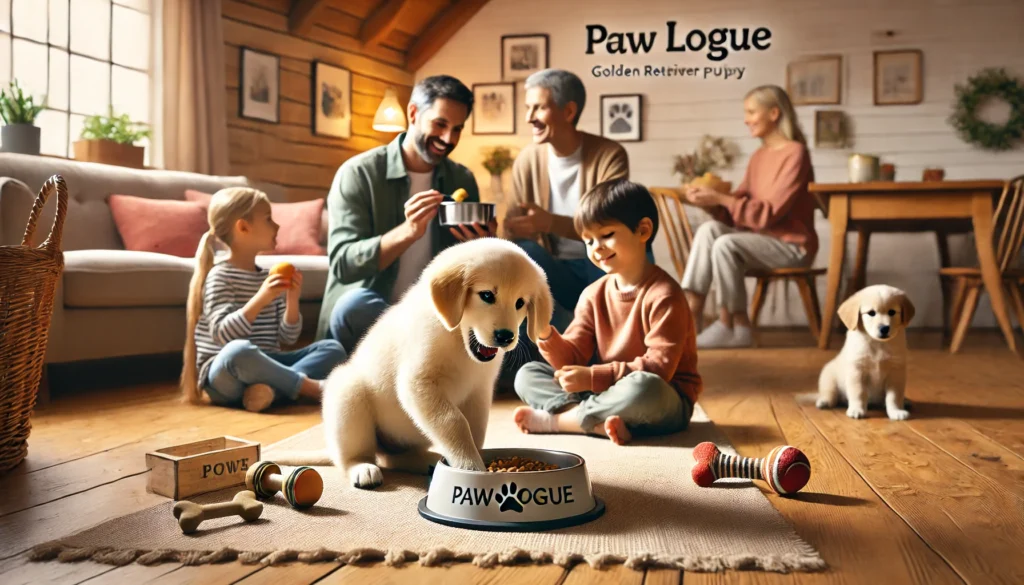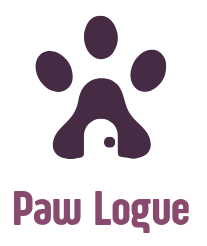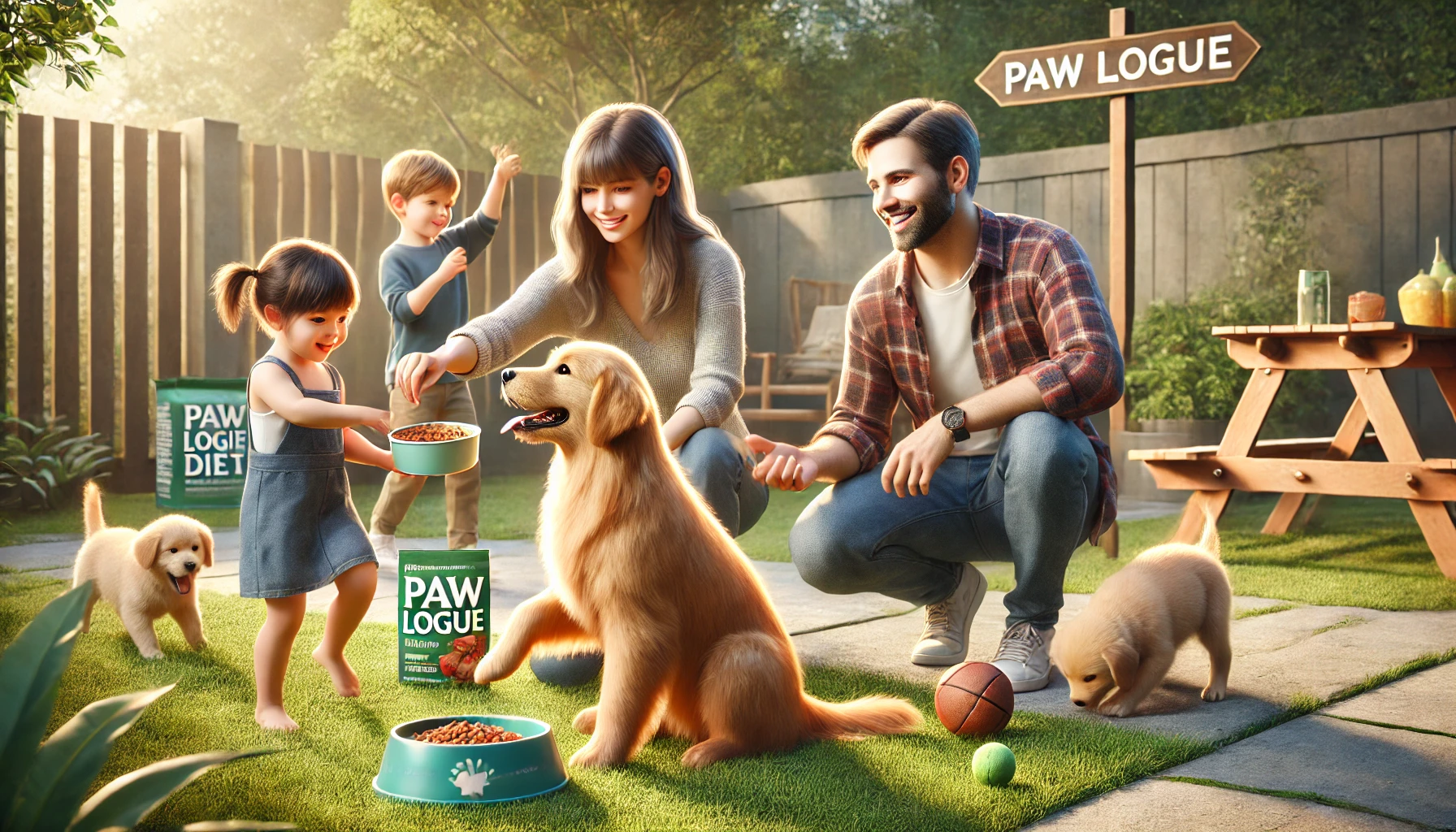Golden Retrievers are one of the most popular dog breeds in the world, loved for their friendly demeanor and gentle temperament. But as a Golden Retriever puppy owner, you have a huge responsibility. One of the key aspects of raising a healthy and happy Golden Retriever puppy is feeding them the right diet from the start. What you feed your puppy in the first year of life lays the foundation for their long-term health, energy levels, and overall well-being.
Understanding the specific nutritional needs of a Golden Retriever puppy is crucial. They’re not just smaller versions of adult dogs; they require a unique balance of proteins, fats, and carbohydrates tailored to their growing bodies. Let’s dive into how to build the perfect diet for your Golden Retriever puppy, addressing common challenges and providing clear, factual guidance on premium puppy food choices.

Check other Puppy Diets
Why Your Golden Retriever Puppy’s Diet Matters
Golden Retrievers, especially when young, grow rapidly. They will experience dramatic changes in their first year, going from tiny, clumsy puppies to strong, energetic dogs. This fast growth makes it essential to provide the proper nutrients to support bone development, immune function, and muscle growth.
Many new pet owners think that as long as they buy “puppy food,” they’re doing enough. However, Golden Retrievers are prone to specific health problems like hip dysplasia, obesity, and allergies. Feeding them the right type of food can help minimize these risks.
The Basics: What Nutrients Does a Golden Retriever Puppy Need?
A puppy’s nutritional needs are different from an adult dog’s because they’re growing and developing. These are the key nutrients you need to focus on:
- Protein: Essential for muscle and tissue development. A Golden Retriever puppy needs about 22-25% of their diet to come from high-quality protein. This helps them build the muscle mass they’ll need as adults.
- Fat: Provides energy and supports brain development. For puppies, fat should comprise about 8-10% of their diet. Fats, especially Omega-3 and Omega-6 fatty acids, are also crucial for a healthy coat and skin.
- Carbohydrates: While less critical than protein and fats, carbs still play a role in providing energy, especially for highly active breeds like Golden Retrievers.
- Calcium and Phosphorus: These minerals are critical for bone development. Overfeeding calcium, however, can contribute to skeletal problems like hip dysplasia, which Golden Retrievers are genetically predisposed to. Look for a calcium-to-phosphorus ratio close to 1.2:1, which is appropriate for slow, steady growth.
- Vitamins and Minerals: These micronutrients ensure a strong immune system, healthy skin, and a glossy coat. Vitamin E, zinc, and copper are especially important for your puppy’s development.
Common Challenges in Golden Retriever Puppy Diets
Even with the best intentions, many puppy owners make mistakes that can lead to health problems. Here are a few challenges to be aware of:
1. Overfeeding and Obesity
Golden Retrievers have a tendency to overeat and gain weight. Obesity in puppies is dangerous as it places undue stress on growing joints and bones, increasing the likelihood of skeletal disorders later in life. Studies have shown that slightly underfeeding large-breed puppies (without causing malnutrition) can significantly reduce the risk of hip dysplasia. In one long-term study conducted by the University of Pennsylvania, dogs fed a 25% reduced-calorie diet showed lower rates of hip dysplasia compared to those fed unrestricted diets.
Solution: Follow feeding guidelines based on your puppy’s weight and age. Avoid feeding them table scraps or excessive treats, as these can quickly add unnecessary calories.
2. Choosing Poor-Quality Dog Food
Not all dog foods are created equal. Many budget-friendly dog foods contain low-quality fillers like corn, wheat, and soy, which offer little nutritional value. These fillers can also trigger allergies in Golden Retrievers, leading to skin problems or digestive issues.
Solution: Opt for high-quality, premium dog food that contains real animal protein as the first ingredient, such as chicken, turkey, or fish. Stay away from food that lists “meat by-products” or “animal meal” without specifying the type of animal.
3. Rapid Growth
While you want your puppy to grow big and strong, rapid growth is not always a good thing, especially for large breeds like Golden Retrievers. Growing too fast can put excessive strain on their developing joints, leading to skeletal problems.
Solution: Feed your puppy a diet specifically formulated for large-breed puppies. These foods often have controlled calcium levels and a precise calcium-to-phosphorus ratio to support slow and steady growth. Avoid adding supplements unless prescribed by a vet.
What to Look for in Premium Puppy Food for Golden Retrievers
When choosing food for your Golden Retriever puppy, consider going premium. Yes, it’s a bit more expensive, but investing in quality food early on can help prevent expensive vet bills later due to health complications. Premium foods generally offer higher-quality ingredients and are formulated to meet the unique needs of large-breed puppies like Golden Retrievers.
Here are some premium puppy foods that are commonly recommended by veterinarians:
1. Royal Canin Golden Retriever Puppy
This food is specifically designed for Golden Retriever puppies and addresses their unique needs. The kibble size and texture are formulated to encourage your puppy to chew properly, promoting healthy digestion. The formula is rich in Omega-3 and Omega-6 fatty acids, helping to promote a shiny coat and healthy skin. It also contains essential nutrients to support your puppy’s immune system as they grow.
2. Hill’s Science Diet Large Breed Puppy
This food is often recommended for large-breed puppies due to its balanced nutrition. It’s made with high-quality protein from chicken meal to support muscle growth. The formula also includes controlled levels of calcium to help avoid skeletal issues. It has no artificial colors, flavors, or preservatives, which is another reason many pet owners trust it.
3. Blue Buffalo Life Protection Formula Large Breed Puppy
This food contains deboned chicken as the first ingredient, ensuring a high-quality protein source. It also includes DHA and ARA, which are crucial for brain development and healthy eyes. Additionally, this formula contains a blend of vitamins, minerals, and antioxidants that support immune system health, making it a great choice for Golden Retriever puppies.
4. Orijen Puppy Large
If you prefer a grain-free option, Orijen Puppy Large is a premium food worth considering. It boasts an impressive list of real animal ingredients, including chicken, turkey, and wild-caught fish, all sourced from trusted suppliers. The food is designed to mimic a dog’s natural diet, with high protein levels and fresh, whole foods. Orijen also includes freeze-dried liver for a rich flavor that puppies love.
Homemade Diets: Are They Safe for Golden Retriever Puppies?
Some owners may be tempted to prepare homemade meals for their Golden Retriever puppies. While this approach can provide you with more control over ingredients, it also requires precise nutritional balancing, which is difficult to achieve without professional guidance.
If you’re considering a homemade diet, it’s essential to work closely with a veterinarian or a pet nutritionist to ensure your puppy is getting all the necessary nutrients. Puppies fed incomplete or imbalanced homemade diets are at risk of developmental problems, including weak bones, poor muscle growth, and compromised immune function.
Feeding Schedule for Golden Retriever Puppies
Consistency is key when feeding your puppy. Establishing a feeding schedule helps regulate digestion and keeps your puppy’s energy levels stable throughout the day.
Week 8-12: Feed your puppy four small meals a day. At this age, their stomachs are still small and can’t handle large amounts of food at once.
Months 3-6: Reduce the number of meals to three per day. By now, your puppy should be able to eat slightly larger portions.
Months 6-12: Once your puppy hits the 6-month mark, you can transition to feeding twice daily. This feeding schedule is typically maintained into adulthood.
It’s important to transition between foods gradually. When moving from one brand of food to another (or transitioning from puppy to adult food), mix small amounts of the new food with the current food, gradually increasing the new food over the course of 7-10 days. This will help prevent digestive upset.
Monitor Your Puppy’s Growth and Weight
Golden Retriever puppies grow rapidly, so it’s essential to monitor their weight and body condition regularly. You should be able to feel their ribs without much fat covering them, and when you look at them from above, they should have a noticeable waist.
If you’re ever unsure about whether your puppy is at a healthy weight, consult your vet. A well-balanced diet is the first step in maintaining a healthy weight, but regular exercise is also important. Make sure your puppy gets plenty of playtime and controlled walks to help burn off energy and build muscle.
Final Thoughts on Feeding Your Golden Retriever Puppy
Feeding your Golden Retriever puppy a balanced, nutrient-rich diet is one of the most important things you can do to ensure they grow into a healthy, happy adult. Premium puppy foods are a great choice because they’re specifically formulated with the needs of large-breed puppies in mind, containing the right balance of protein, fats, vitamins, and minerals to support healthy growth.
Avoid common pitfalls like overfeeding, rapid growth, and poor-quality dog food. Remember, what you feed your Golden Retriever puppy today will have lasting effects on their health for years to come. By choosing the right food, establishing a consistent feeding schedule, and monitoring their growth, you’re setting your furry friend up for a long and vibrant life.
Can I feed my Golden Retriever puppy human food?
It’s best to avoid feeding your puppy human food as many ingredients can be harmful to dogs, such as chocolate, onions, garlic, and certain spices. Stick to specially formulated puppy food to ensure balanced nutrition.
When should I switch my Golden Retriever puppy to adult food?
Golden Retriever puppies can typically transition to adult food around 12 to 15 months of age, depending on their growth. Consult with your vet to determine the right time based on your puppy’s development.
How much water should my Golden Retriever puppy drink daily?
Puppies generally need about half a cup of water every two hours. However, during exercise or hot weather, they may require more. Always provide fresh water and ensure they stay hydrated.
Can I give my puppy raw food?
Some owners opt for a raw food diet, but it can be tricky to balance nutrients. If you’re considering raw feeding, it’s crucial to consult a veterinarian or canine nutritionist to avoid nutrient deficiencies.
What kind of treats are safe for Golden Retriever puppies?
Opt for healthy, low-calorie treats specifically designed for puppies. Avoid treats high in fat, sugar, or artificial ingredients. Treats should only make up about 10% of your puppy’s daily calorie intake.
How do I know if my Golden Retriever puppy is allergic to their food?
Signs of a food allergy in puppies can include itching, excessive licking, ear infections, and gastrointestinal issues like diarrhea or vomiting. If you notice these symptoms, consult your vet, who may recommend an elimination diet to identify the allergen.
Can I give supplements to my Golden Retriever puppy?
Most high-quality puppy foods provide all the nutrients your puppy needs. Avoid giving supplements unless directed by a veterinarian, as excessive vitamins or minerals can cause health problems.
How do I prevent bloating in my Golden Retriever puppy?
To minimize the risk of bloating, feed your puppy smaller, more frequent meals instead of one large one. Also, avoid vigorous exercise right after eating and ensure they aren’t gulping their food too quickly by using a slow-feeder bowl.

